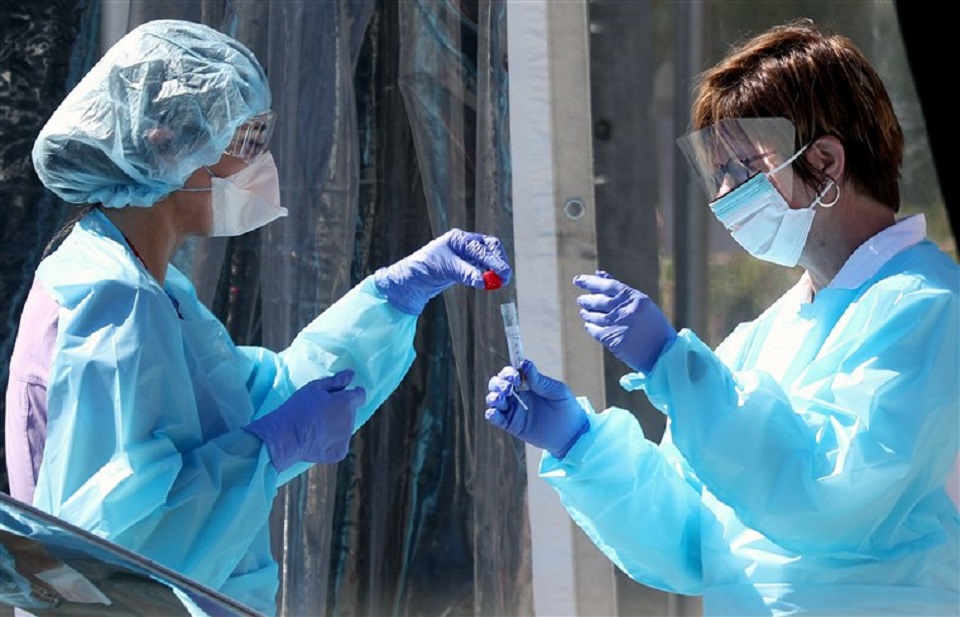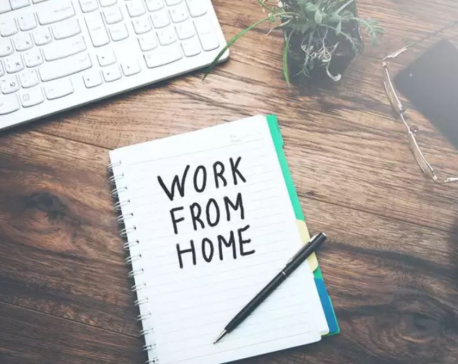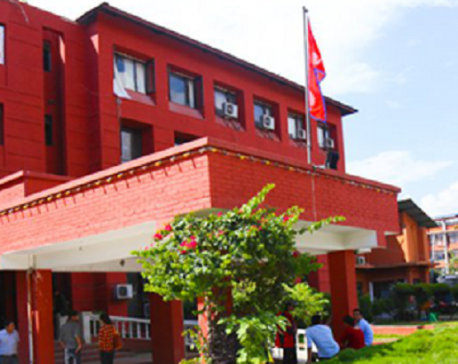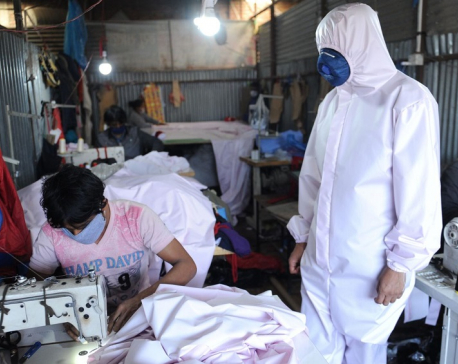
OR
Protect frontline healthcare workers
Published On: April 6, 2020 09:02 AM NPT By: Dr Sushil Koirala and Dr Suraj Bhattarai

More from Author
Frontline healthcare workers need adequate infection prevention and control (IPC) measures as per WHO and national guidelines and their safety and security concerns need to be addressed.
There has been a lot of discussion and news about shortages of Personal Protective Equipment (PPE) not only in Nepal but globally. In some hospitals, including in the US, health care workers are compelled to work without PPE. Due to looming shortages of PPEs globally, the US President has ordered the companies not to export any PPEs to other countries.
There are mainly two misconceptions among members of the public regarding PPE. First that PPE means a complete set of equipment (gloves, mask, goggles, foot wear, cap, face shield) and that it has to be double or triple-layered. The truth is even a simple face mask or N95 mask is a form of PPE, so is a pair of gloves and a face shield. Which protective gears to use depends upon the level of contact with the patient. If a healthcare worker is performing aerosol generating procedures (intubation, bronchioalveolar lavage), he/she should wear the full protective gear or a whole-body PPE suit. However, if he/she is assessing clinical status or taking vitals, then a pair of gloves, N95 mask and a face shield will do.
Second misconception is that PPE is only for the benefit and safety of health workers. This is only partially true.
PPE certainly helps health workers to avoid potential occupation health disaster. With adequate protection only, they can provide services with high morale and confidence. We cannot afford to lose health workers because of Covid-19. Frontline health workers are like soldiers and we need them to win this battle. We need to avoid or minimize their loss as much as possible. By any chance, if an unfortunate incidence happens in a hospital and a health worker is infected or if he/she has symptoms similar to that of Covid-19, he/she should remain in self-quarantine or isolation for at least two weeks.
It should be widely emphasized that a health worker infected is the carrier of infection who can infect large number of patients and health workers around him/her, further worsening the situation. It also puts the family members and neighbors of health workers at risk. Moreover, it is risky for patients to seek care from health workers working without PPE who are potentially exposed to the infection or who could be the carriers unknowingly.
The government has enforced lockdown to suppress incidence of COVID-19 infection and contain the spread of the virus. The country and people are paying a huge price as the whole country and business have been shut down. But without proper protection of health workers, the objective of lockdown cannot be achieved. Therefore, PPE is essential not only for the personal safety of health workers but for the protection of at-risk families and communities.
PPE is the most important requirement at the current scenario after testing to contain Covid-19 case surge in Nepal. It is unethical for health workers not to provide treatment to patients in emergency situation, but it is equally unethical of the government and its concerned departments to put health workers at unwarranted risk of infection. Furthermore, it is unethical to put care- seeking patients at risk as they are also not protected against infection transmission from healthcare workers who are forced to work without PPE.
The government has brought PPEs recently form China and it received a fair amount of equipment from various donor agencies and professional societies. Therefore, without further delay, all of the available PPEs should be made available to frontline health workers working in government and private hospitals. The government should also ease the procurement process in order to buy and stockpile more PPEs. The government should not hesitate to partner with private business and dealers in this process. The private hospitals should also purchase necessary PPEs, if available in the market, and protect their staff and patients. Moreover, the mushrooming PPE producers in various parts of the country should be monitored and regulated so that their products meet minimum standards recommended by World Health Organization (WHO) and Center for Disease Control (CDC), USA.
There may be shortages of PPEs due to various reasons, but it is the moral duty of the government to try all possible options and measures to ensure availability and accessibility of protective gears to the frontline health workers across the nation. If more cases are diagnosed in coming days, the government may need to provide a separate safe place for health workers to stay such as nearby hotels instead of asking them to go homes and mingle with their family members. Separating frontline workers at the time of service is important to prevent infection from spreading to security personnel, ambulance drivers and larger community.
More importantly, the harassment of healthcare workers by the hospital owners (private sector), local administrators (government facilities) and the landlords should be stopped immediately. All of the wrong-doers must be brought into justice so that healthcare workers can work in a hassle- free environment as they are committed to providing care to the suspects or confirmed Covid-19 cases. All frontline healthcare workers should be applauded as ‘heroes’ with due respect as they are fighting with an invisible enemy of such a large scale by putting their own lives at stake.
Authors work in the area of infectious disease research and public programs in Nepal and
abroad. Views are personal
You May Like This

Possibility of work-from-home in Nepal
In recent years, the way we work has undergone a significant transformation, largely driven by advancements in technology and changes... Read More...

COVID-19 test to be conducted on health workers
KATHMANDU, April 17: The Ministry of Health and Population will conduct the COVID-19 test on the health workers working in... Read More...

Amid shortage of PPE, National Innovation Centre begins its manufacturing in Bhaktapur
KATHMANDU, March 28: National Innovation Center has started the production of personal protective equipment (PPE) required for health workers during... Read More...





Just In
- NRB introduces cautiously flexible measures to address ongoing slowdown in various economic sectors
- Forced Covid-19 cremations: is it too late for redemption?
- NRB to provide collateral-free loans to foreign employment seekers
- NEB to publish Grade 12 results next week
- Body handover begins; Relatives remain dissatisfied with insurance, compensation amount
- NC defers its plan to join Koshi govt
- NRB to review microfinance loan interest rate
- 134 dead in floods and landslides since onset of monsoon this year













Leave A Comment